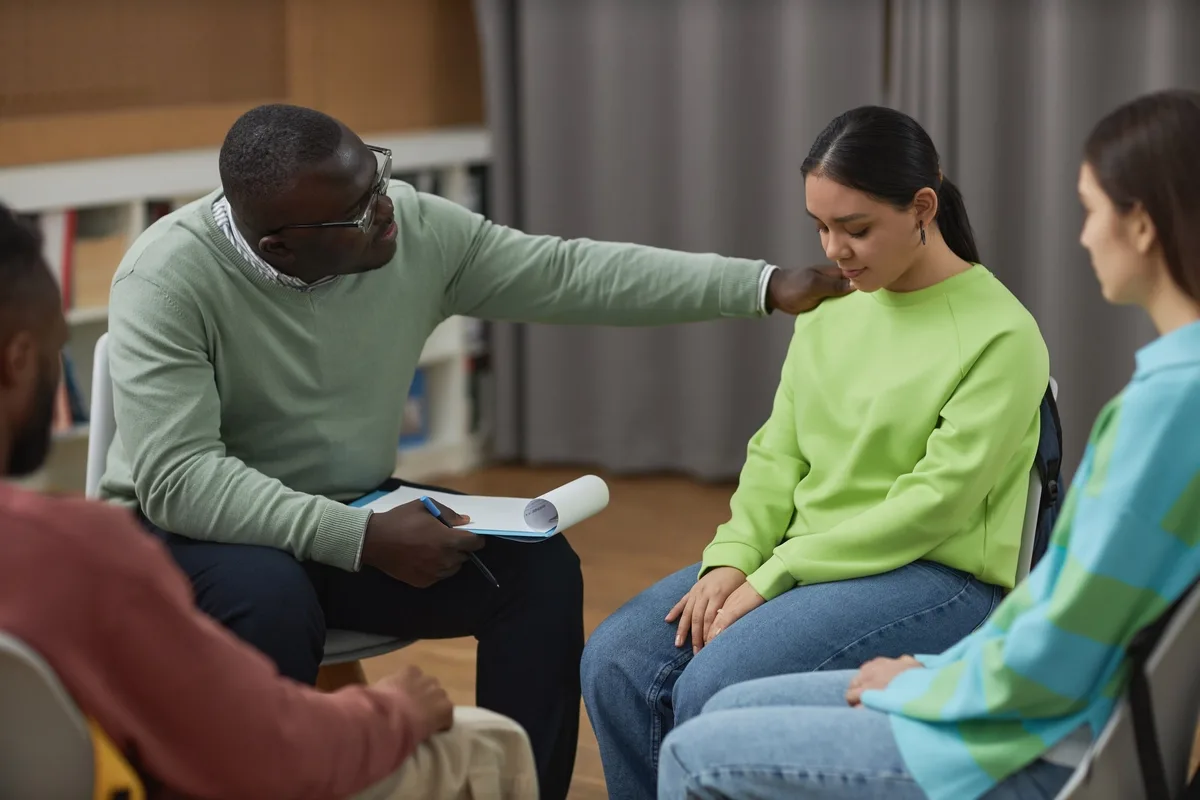24/7 Helpline:
(866) 899-111424/7 Helpline:
(866) 899-1114
Learn more about PTSD Treatment centers in Murphy
PTSD Treatment in Other Cities

Other Insurance Options

ComPsych

Absolute Total Care

Optima

Providence

State Farm

Highmark

American Behavioral

Access to Recovery (ATR) Voucher

Ambetter

PHCS Network

Ceridian

Premera

Health Net

Sutter

Lucent

Self-pay options

Kaiser Permanente

Meritain
Beacon

Magellan Health










